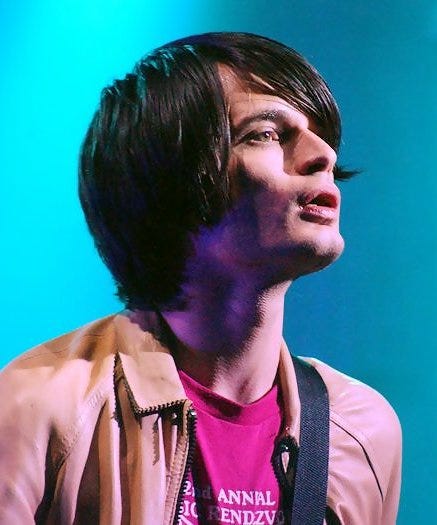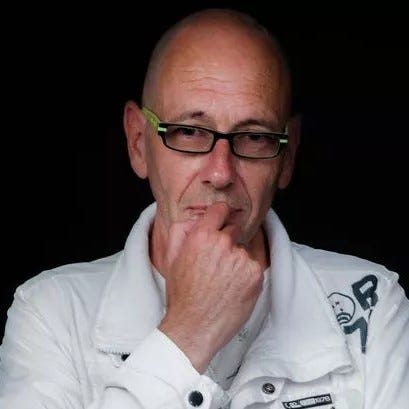#Bristol - #Radiohead Star Gig. The Cultural Catwalk of Cancellation.
Kneecap vs. Greenwood: A Study in Selective Outrage and the Weaponisation of Well-Meaning Intentions.
Image: Johnny Greenwood.
So, in a development that would likely cause one of those "sorry-arsed" protesters to spill their lukewarm oat latte down their ethically sourced, yet suspiciously stained, hemp trousers, Radiohead's Jonny Greenwood has had to pull the plug on his Bristol gig. Apparently, a gaggle of individuals, likely clad in shapeless, earth-toned ensembles and clutching well-thumbed pamphlets, issued some "credible threats." One can almost picture them now, furiously knitting menacing slogans onto their organic cotton tote bags.
This sartorially challenged faction, identifying as the Palestinian Campaign for the Academic and Cultural Boycott of Israel (Pacbi) – a name that rolls off the tongue with all the elegance of a dropped stitch – actually celebrated the cancellation. Their reasoning? Apparently, Greenwood and his Israeli collaborator, Dudu Tassa, performing together would have somehow "whitewashed" the current unpleasantness in Gaza. One shudders to think what these arbiters of cultural purity consider acceptable concert attire. Probably something involving tie-dye and a distinct lack of irony. But still, if anything at all, I suppose we should appreciate their dedication to raising awareness, especially their own. But still, they speak truth to power, mostly their own perceived power to inconvenience others.
Now, Jonny, bless his musically gifted soul, along with Tassa and their ensemble, penned a rather dignified letter about the whole sorry affair. They pointed out the obvious: threatening venues and their staff isn't terribly sporting, even for those whose understanding of "chic" likely involves layering several ill-fitting cardigans. They also had the temerity to suggest that perhaps stifling artistic expression isn't a victory for anyone, unless your idea of a triumph involves silencing a beautifully crafted guitar riff with the dull thud of self-righteousness.
Their point about art existing beyond the grubby realm of politics is rather well-made, isn't it? Imagine, musicians from various Middle Eastern countries – Syria, Lebanon, Kuwait, Iraq – coming together through a shared love of music, regardless of national borders or, heaven forbid, their governments' policies. It's a concept that probably clashes horribly with the rigidly defined worldviews of those who likely coordinate their protest outfits based on the latest online outrage.
The musicians also astutely noted their paradoxical predicament: deemed "too inclusive" by one side and "insincere" by the other. It's a bit like being told your bespoke suit is both "too loud" and "too understated" by people who probably think a tracksuit is appropriate for a formal occasion.
Their mention of the Kneecap situation further highlights the delicious irony of it all. The very people championing one artist's freedom of expression are the ones so determined to silence another. It's a level of cognitive dissonance that would likely result in a serious clash of patterns in their protest placards.
And Greenwood and Tassa's poignant question – "How can this be more important than what's happening in Gaza and Israel?" – is rather devastatingly on point. One wonders if these "sorry-arsed" protesters, in their fervent campaign to shut down a concert, have considered the sheer self-importance of believing their cultural boycott outweighs the complexities of a deeply rooted conflict.
Ultimately, the hope is that Greenwood and Tassa will indeed get to play again. Not just for the sake of their music, but as a quiet, elegant rebellion against the drab uniformity of thought and the stifling of artistic voices by those who seem to mistake loud pronouncements for meaningful action. Now, if you'll excuse me, I believe it's time for a perfectly brewed cup of tea and perhaps a spot of gentle contemplation on the importance of both freedom of expression and how Middle Eastern authorities might handle such protesters.



